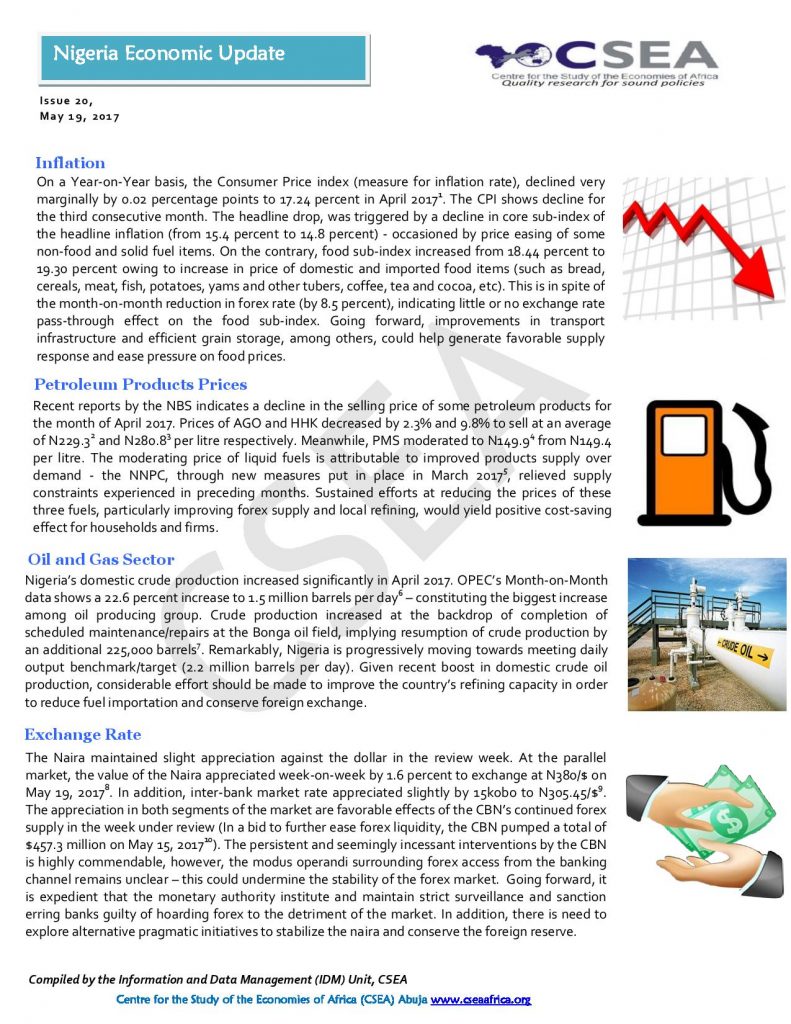Macroeconomic Report & Economic Updates

May 31, 2017
Nigeria Economic Update (Issue 20)
The Naira maintained slight appreciation against the dollar in the review week. At the parallel market, the value of the Naira appreciated week-on-week by 1.6 percent to exchange at N380/$ on May 19, 2017. In addition, inter-bank market rate appreciated slightly by 15kobo to N305.45/$. The appreciation in both segments of the market are favorable effects of the CBNs continued forex supply in the week under review (In a bid to further ease forex liquidity, the CBN pumped a total of $457.3 million on May 15, 2017).
Related
Institutions And Sustainable Industrial-led Development In Sub-Saharan Africa
In 2015, economic growth in Sub-Saharan Africa
(SSA) slowed to 3.4 percent from 4.6 percent the previous year. The economic
slowdown in the region was the result of an interplay of several external and
domestic factors such as lower commodity prices, slowdown in the economies of
major trading partners, tightening borrowing conditions, political instability
and conflict, electricity shortages and other infrastructure deficiencies (World Bank, 2016). This sluggish
growth trends is in contrast to the impressive growth recorded in the region,
over the past decade.
FDI, FPI And Other Investments
FDI, FPI and other Investments: Portfolio investment has continued to fall rapidly since 2014, while FDI inflows remain subdued since 2010
Nigeria Economic Update (Issue 29)
Global oil price edged upwards in the review week. International crude benchmark, Brent, rose week-on-week by 3.1 percent to $50 per barrel as at July 21, 20173 a level it had not attained since June. The remarkable gains followed demand-side progress earlier statistics from China showed increase in crude imports, indicating prospects of higher demand. This was also complimented by the huge drop in US domestic crude production (Crude reserves fell by 4.7 million barrels). If the trend is sustained, Nigeria could record further rise in its Gross Federally Collected Revenue. Nevertheless, there remains a need for Nigeria to overcome the challenge of harnessing its oil and gas resources by making strategic policy choices andensuring coordination in policy implementation to minimize macroeconomic distortions.
